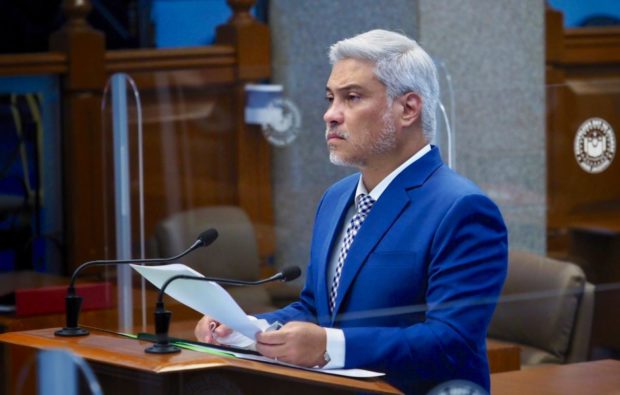Senate approves bill assigning cooperative dev’t officer in LGUs

Photo from the Office of Senator Zubiri
MANILA, Philippines — A bill that would amend the Local Government Code of 1991 to create a mandatory position for a cooperative development officer (CDO) in all local government units (LGUs) has been approved by the Senate in the third and final reading.
The Senate gave its nod to Senate Bill No. 1855 or the Coop Development Officer Bill to authorize the CDO position in all LGUs so community groups and sectors seeking to form respective cooperatives will be immediately assisted at the local level.
“The National Cooperative Month has just ended, but I hope the sector finds more reasons to celebrate with the approval of this bill,” Zubiri, also the principal sponsor of the proposed measure, said Monday.
Under SB No. 1855, a CDO in an LGU is tasked to help “promising groups and sectors in organizing and forming their own cooperatives.”
A CDO should also work towards linking regional cooperatives with the Cooperative Development Authority and other national government agencies in order to synchronize their objectives with the national cooperative movement.
Article continues after this advertisementThe bill allows LGUs to create a position and appoint a full-time CDO, or it can be merged to the duties of an existing officer in the city, municipal, or provincial government — depending on the size of the local cooperative sector or the capabilities and budget of LGUs.
Article continues after this advertisementFor Zubiri, creating the CDO position would not only help cooperatives as it would likewise aid the country’s economy by facilitating synchronized work between agencies.
“The cooperative sector is such a huge economic driver, especially in the countryside,” he explained. “We have over 28,000 registered cooperatives in the country, which is a good, healthy number, but I believe we can have an even more robust national cooperative movement if we strengthened government support for the sector.”
“Once we have CDOs in all our LGUs, we will be able to more easily reach communities in our most far-flung areas, and they will be able to deliver vital and immediate support on the grassroots level,” he added.